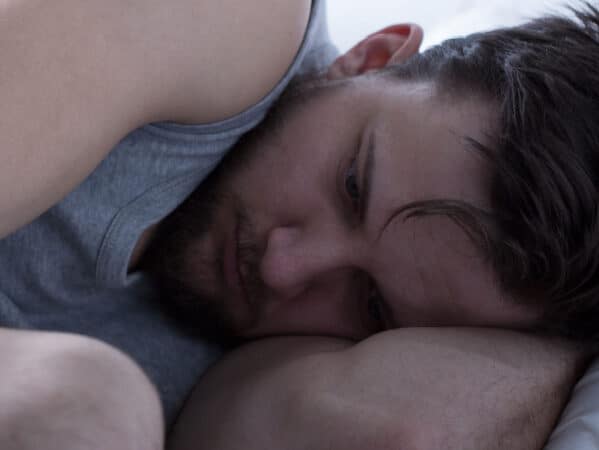Are you or someone you know struggling with addiction?
I may have a problem I am concerned for a loved oneKetamine is classified as a dissociative anesthetic. This means it’s used to induce and sustain anesthesia during medical procedures. It can also be used to help treat mental health conditions like treatment-resistant depression, as well as physical health concerns like chronic pain.
Like other drugs, there’s potential for misuse with ketamine. According to the Centers for Disease Control and Prevention (CDC), ketamine was detected in fewer than 1% of all overdose deaths between July 2019 and June 2023. However, 24 people died from taking ketamine alone during this same timeframe.
<1%
Ketamine was involved in fewer than 1% of overdose deaths
Understanding ketamine overdose signs can save someone’s life. Taking this drug in amounts higher than intended can cause such significant symptoms that people can die from it.
When you know what to do during a ketamine overdose, you can take the proper steps to mitigate the risk and control the symptoms. If you think someone is overdosing on ketamine, ask for help from professionals. Call 911 and stay with the person until an ambulance arrives.
Common Ketamine Overdose Symptoms
People who take ketamine can experience an overdose, and the more they take, the stronger their symptoms.
An untreated ketamine overdose can be fatal.
The following symptoms are present when people are both intoxicated and overdosing:
Sedation
Chest pain
Nausea or vomiting
Disorientation
Paranoia
Anxiety
Slurred speech
Rigid muscles
Symptoms only seen in people who are overdosing include the following:
Slow breathing
Low blood pressure
Coma
Stupor
Seizures
Since ketamine can cause sedation and altered consciousness, people who are overdosing may be unable to answer simple questions. They may not be able to tell you that they’ve taken drugs, and they may not know how much they took. Some people may be unconscious, so they’re unable to answer questions at all.
Is Ketamine Overdose Serious?
An untreated ketamine overdose can be fatal. Death risks are higher when people mix ketamine with other drugs, including opioids. But anyone can lose their life during an overdose situation.
Researchers point out that ketamine can cause sedation complicated by vomiting. When people pass out due to drugs, the vomiting reflex remains active. People who vomit while unconscious can choke on the liquid and die.
Seizures caused by ketamine can also be life-threatening. Body temperature rises with each episode, and organs can fail in response.
People without seizures or vomiting are still at risk during ketamine overdose. They may experience dissociative symptoms, encouraging them to behave in erratic or dangerous ways. They could experience a life-threatening accident, or they could hurt someone else while intoxicated.


Ketamine Addiction
How Is Ketamine Overdose Treated?
No prescription medication or herbal remedy can reverse a ketamine overdose. People need time to process the doses they took, and they must do so in a safe and supportive environment.
Experts say people who took too much ketamine typically experience symptoms for several hours, and they should remain under observation in a medical setting for an hour or two longer than their symptoms persist.
Doctors may use the following methods to help:
| Fluids | Intravenous fluids can help to flush drugs out of the person’s body. |
| Cooling blankets | Reducing the person’s body temperature is crucial if they’ve experienced seizures. |
| Darkness | Keeping the room dim and cool could help people experience fewer hallucinations. |
| Medications | Some people need therapies to stop seizures, lower blood pressure, or stop nausea. |
| Testing | Since ketamine is often contaminated with other drugs, doctors may run blood or urine screenings and change their treatment plans based on the results. |
When given the proper care, people experiencing a ketamine overdose can get better. For example, small children who inadvertently took up to 100 times more ketamine than recommended recovered when treated in the emergency room. For relapse prevention, structured follow up care through a New Jersey inpatient addiction treatment program can provide medical oversight and therapy that supports long-term recovery.
But people who don’t get care and monitoring can face very serious consequences from their drug use.
First Aid Steps For Someone Overdosing on Ketamine
People overdosing on ketamine may be unresponsive to your questions. They may not be able to tell you how much ketamine they took, where they got it, and when they took their last dose.
If you’re around someone who’s overdosing on ketamine, it’s important to act quickly and calmly. Here’s what to do:
Step 1: Call 911
If you think someone is overdosing, don’t delay while you wait for confirmation. Call 911 and tell the operator about the symptoms you see. The operator may give you instructions to help the person feel better (such as turning the person on their side). Follow those instructions and stay with the person until help arrives.
Step 2: Stay With Them
It’s critical to remain with the person while help arrives. Remember that ketamine can alter reality, making bad choices seem smart. Your presence could help prevent life-altering mistakes.
Step 3: Explore Treatment Options
Once the person has recovered, start talking about how ketamine treatment programs work. Offer to explore those options with the person and point out you’re ready to help. Your gentle encouragement could motivate the person to quit using drugs for good.
Frequently Asked Questions About Ketamine Overdose
Yes. A ketamine overdose can be fatal. However, this isn’t common if ketamine is the only drug that someone takes. In most cases, fatalities occur when someone takes ketamine in combination with another substance, such as alcohol. In that case, both substances depress respiration and cardiovascular operation, which can lead to death.
While this drug is often taken in conjunction with other substances, like opioids, alcohol, or marijuana, this is never recommended. Combining these isn’t only dangerous but it can also make you more likely to overdose and experience adverse physical complications.
Most people who overdose on ketamine recover through supportive care. Outcomes are best when that care is given as soon as possible after the suspected overdose occurs. In cases of more severe respiratory distress, the person may need to be intubated and placed on a monitor for round-the-clock care.
There are several factors that can put someone more at risk of experiencing a ketamine overdose. For one, people who are used to taking ketamine for recreational purposes may be at a higher risk of overdosing. This is because recreational use is often associated with higher amounts of the drug.
In addition, some people have certain health conditions that make taking ketamine more risky. This includes anyone who suffers from a pre-existing cardiac condition like heart disease or hypertension.
Recovering from a ketamine overdose can be an eye-opening experience. If you suspect someone may be addicted to using ketamine beyond its intended or prescribed function, this is a good time to speak to them about seeking help. Boca Recovery Centers offers outpatient and residential treatment to help individuals learn how to live a substance-free life that optimizes their physical, mental, and emotional health.
- Ketamine Toxicity. (January 2023). StatPearls.
- Ketamine Overdose Symptoms. Time 2 Act Missouri.
- Inadvertent Ketamine Overdose in Children: Clinical Manifestations and Outcome. (October 1999). Annals of Emergency Medicine.
- Ketamine. (October 2022). U.S. Department of Justice.
- Overdoses and Deaths Related to the Use of Ketamine and Its Analogues: A Systematic Review. (November 2022). The American Journal of Drug and Alcohol Abuse.
- Special K with No License to Kill: Accidental Ketamine Overdose on Induction of General Anesthesia. (January 2018). American Journal of Case Reports.
- Ketamine Misuse: An Update for Primary Care. (2023). British Journal of General Practice.















